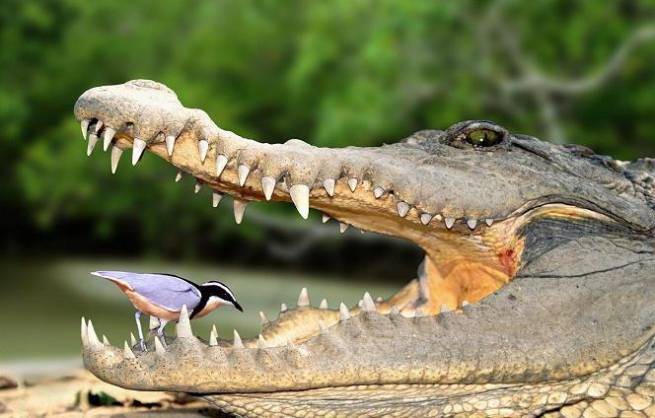Do you know what mutualism is? This is when two biological species “complement” each other’s existence for mutual benefit and completely rely on the “partner”.
How writes BB.LV, referring to Wikipedia, mutualism is a widespread form of mutually beneficial cohabitation, when the presence of a partner becomes a prerequisite for the existence of each of them. One type of symbiosis is the coexistence of different biological species.
We all know how often cats and dogs get along well together. And what about other species? Many of them not only get along with each other, but also benefit from it. The mutual relations of such individuals involve the exchange of various services – for example, in exchange for protection from predators, some species provide housing to others, or share prey in exchange for services that are useful to themselves. A perfect example of this coexistence is shrimp and fish.
Cleaner shrimp are very small tropical crustaceans, their “duties” include “dental” services that they perform while living on a coral reef. Fish visit them to remove ectoparasites* and dead skin. There are perhaps a dozen species of these shrimp around the world, each serving dozens of fish species.
Interestingly, more than half of the fish cleaned by shrimp are potential predators. That is, they can and do eat crustaceans regularly. Thus, the benefit for cleaner shrimp is obvious: under other circumstances, their meetings would be reduced to the relationship between predator and prey. But in this case, they cooperate and benefit each other.
There are other types of cleaner organisms in the marine environment, such as some types of sponges and gobies. However, studies have shown that they sometimes “cheat”: instead of cleaning the “client” of parasites, they eat healthy scales, mucus or tissues. True, they often get “answered” for this – fish sometimes punish cleaners by chasing them or refusing to visit them again.
Scientists don’t yet fully understand what makes the two species cooperate over time, but the interaction is fairly common: Cleaner shrimp probably get most of their food each day from fish, sometimes serving more than 10-12 fish per hour.
* Ectoparasites are parasites that live on the surface of the body and on the external organs of animals and humans. There are temporary and permanent parasites. All of them are equipped with a variety of attachment organs – claws, hooks, suction cups, and the like (Wikipedia).







More Stories
Weather forecast: rain and storms in Athens and Thessaloniki on Saturday
Easter with… umbrellas: unstable weather in the coming days – where will it rain
Thodoris Kolidas explains the phenomenon "black sky" on Good Friday